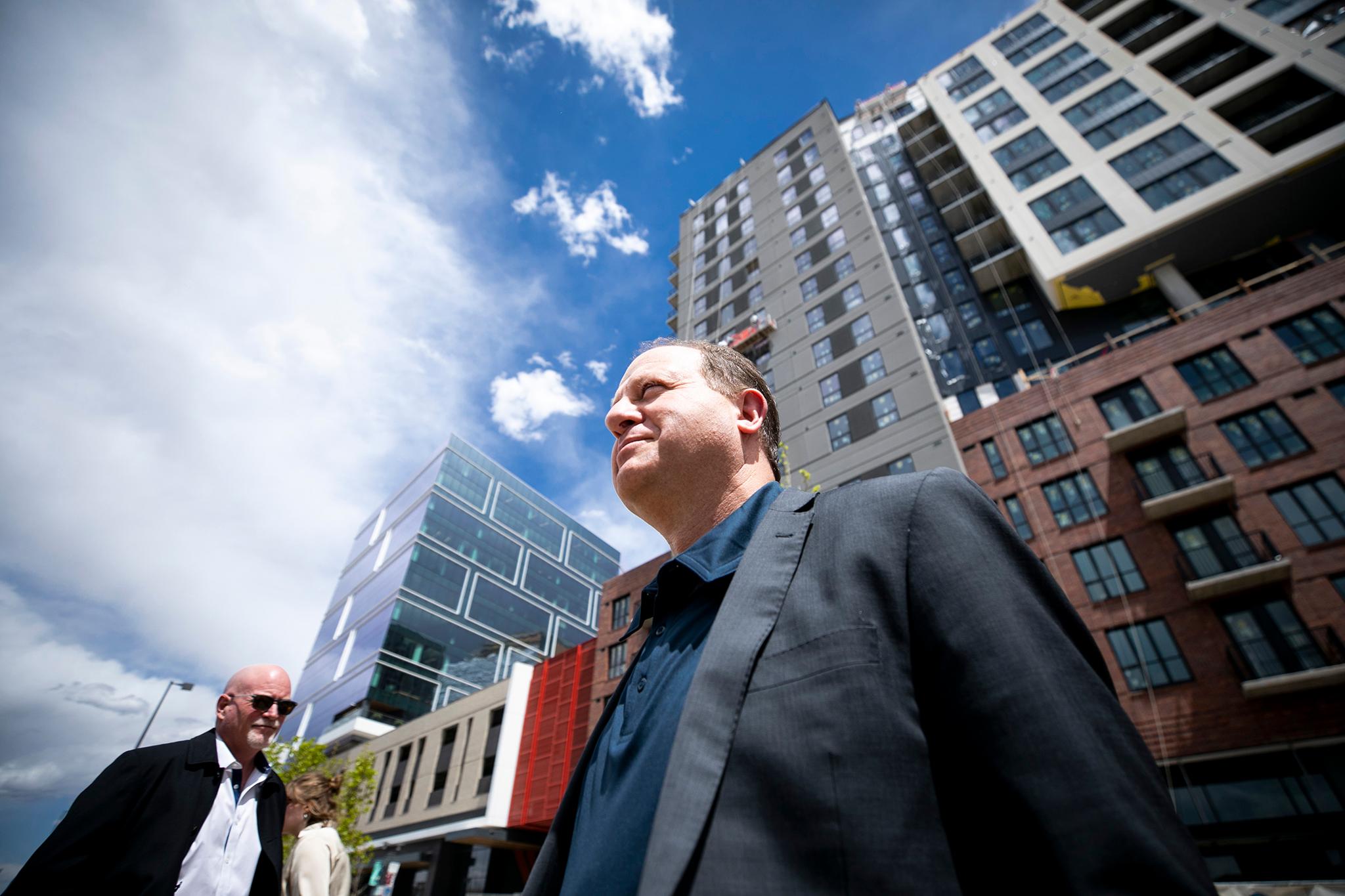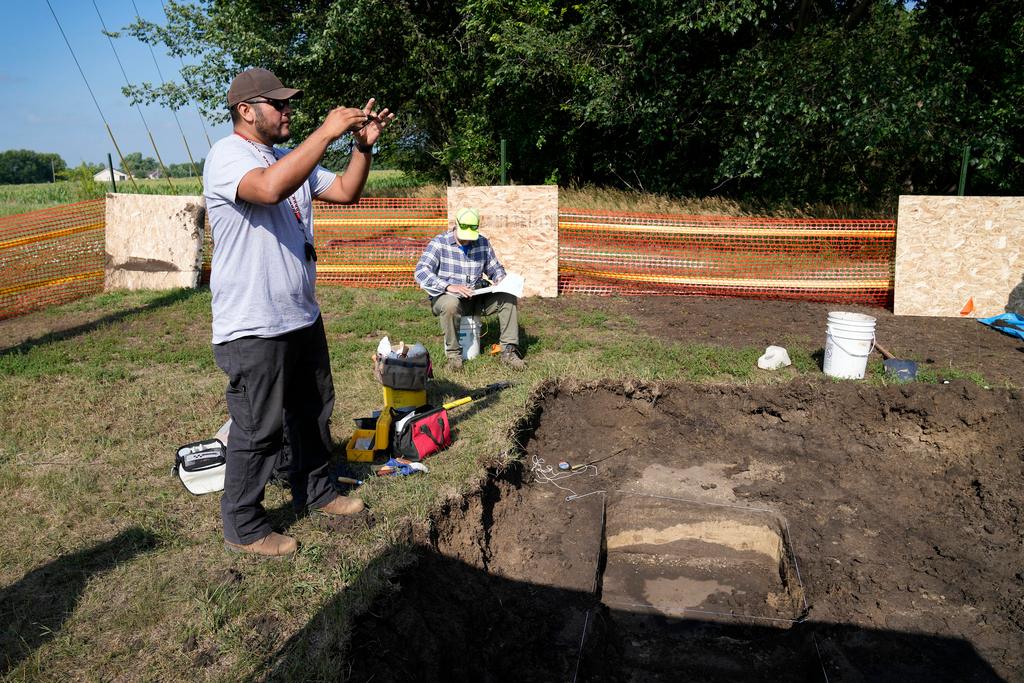
Gov. Jared Polis vetoed one major housing proposal today while signing two others into law, showing once again that Democrats are divided on how best to address the housing crisis.
Polis rejected HB23-1190, which would have given cities a right of first refusal to buy apartment buildings for affordable housing purposes, writing that it could have “large and unanticipated impacts on the housing market.” This move comes after a string of defeats for other housing bills.
In the final days of session, the governor’s sweeping land-use proposal died in the state Senate, as did a progressive effort to grant renters new rights against eviction. Earlier, a Senate committee rejected a proposal to allow local rent control.
It was a disappointing conclusion to the “year of housing” that advocates had hoped for, though some half-dozen housing bills still passed.
“The unfortunate reality of housing and politics reared its ugly head,” said Peter LiFari, an affordable housing executive who supported many of this year’s bills.
The right-of-first-refusal bill would have allowed cities to intervene in the sale of certain apartment buildings. If a city matched the best price on offer, it would get priority to buy the building and convert it to affordable housing. Colorado would have been the first state with a law of this kind, though it would have applied only to buildings with more than 15 units — or five units in rural areas — and are more than 30 years old.
Colorado would have been the first state with such a law. It follows the state’s earlier, similar law for mobile home parks.
Real-estate interests and business groups argued the new measure would have discouraged investors and slowed sales. Sellers would have had to accommodate potentially months of negotiations, and they would have had to give extra time for local governments to arrange financing for the deals. Conservatives and others criticized the proposal as a disruptive intervention in private property sales.
Under the law, “buyers and investors will turn away from these older properties, the infusion of capital will not occur, and these older buildings will further deteriorate, creating problems for renters,” read a letter from the influential law firm Brownstein Hyatt Farber Schreck, sent on behalf of the developer Holland Partner Group to Gov. Polis.
In a veto letter, Polis detailed several other concerns raised in the letter, saying that confusion about title transfers might make lenders skittish, leading to higher costs. The governor also said that “ambiguous language” could “chill real estate transactions” — though the sponsors tried to address those concerns with amendments.
Democratic Rep. Andrew Boesenecker defended the bill, saying that local governments would have made fair, judicious use of their new rights.
“This is a market-based solution at the end of the day. … If we can preserve a property as affordable housing while you [as the seller] get every penny of your asking price, that to me seems like a very reasonable proposition,” he said.
He and the other sponsors responded to the veto with sharp criticism of the governor and the business interests who helped kill the bill.
In a public letter, they wrote that Polis had "sided with the interests of private equity, hedge funds, and their powerful corporate lobbyists over and against the affordability concerns of people in our state," and that he had turned on the proposal despite working for months with the sponsors.
Democrats have two contrasting philosophies
Several other housing bills passed this session, including ones banning local “growth caps;” changing requirements for evictions, rental applications, lease terms and unit conditions; implementing a new affordable housing program approved by voters; and reducing costs for application fees.
On Tuesday, Polis signed a bill that limits how much landlords can charge for security deposits, among other provisions, and another measure that makes it harder to evict a tenant who is on public assistance.
Still, the demise of so many headlining proposals showed a divide in Democratic politics. Left-leaning Democrats lined up behind bills that would grant new rights to renters and support subsidized affordable housing — sometimes drawing opposition from real-estate interests.
In contrast, Polis’ land-use proposal aimed to allow denser development by loosening local zoning rules. And the fates of those two approaches — unleashing private development on one hand, subsidizing affordable housing and empowering renters on the other — appeared to get tangled together. When the Senate failed to pass the “just cause” evictions bill, it helped to turn some Democratic Senators against the land-use bill.
“Folks really aren't aligned as to what the root cause of the issue is,” LiFari said. “I think that disparity essentially soiled the entire well of housing policy this session, and we're living with the outcomes at this point in time.”
Polis alluded to the contrasting philosophies on Tuesday. One of the new laws that Polis signed says that a landlord must go to mediation before evicting tenants who receive income from the government, such as disability assistance. Even as he approved the law, Polis warned that the legislature was taking a “piecemeal approach.”
He wrote: “Renter rights can quickly become renter wrongs if we do not proceed with a higher degree of rigor and consistency moving forward.” The governor expressed similar concerns as he signed a bill that clarifies legal defenses for eviction cases.
Relationships strained before next fight begins
Meanwhile, the governor’s veto of the right-of-first-refusal bill may strain his relationships with some Democratic lawmakers — which were already tested by the contentious fight over the land-use bill.
“We did a robust stakeholder process,” said Sen. Faith Winter, a Democratic sponsor of HB23-1190, pointing to dozens of amendments to the bill. “So, to have us blindsided after the legislative process, which is when the public gets to weigh in … is extremely disappointing.”
In their letter, she and the other sponsors accused business groups of a "bad faith approach" that would have "long-term impacts on our democratic processes, including the ability of the legislature to work with the Governor on critical issues such as affordable housing." The bill was also sponsored by Sen. Sonya Jaquez Lewis and Rep. Emily Sirota, both Democrats.
Polis acknowledged that much of the attack on the bill came after it passed the legislature, saying that he was “deeply disappointed that some stakeholders chose not to engage with the General Assembly” — but adding that he could not “ignore concerns that are brought to me.”
Boesenecker pinned the housing impasse on Polis. “It is alarming that the governor has failed to assure these measures cross the finish line. That is a place of deep concern for me, both in terms of vetoes and other measures that just simply didn't make it through the chambers,” he said, referring to the full slate of housing bills.
Colorado’s leaders nearly universally agree that there is a housing crisis — the question is whether they can agree on a solution, too. And all indications are that the Democrat-on-Democrat housing debate will begin anew next session, with topics from land use to evictions and affordable housing all set to return.
“You will see a right-of-first-refusal bill next year. You will see deep affordability bills next year and affordable housing bills that come out of [the House],” Boesenecker said. Sen. Winter said her side is working to build the political power of renters who have little representation in the Capitol.
Boesenecker called for a more cohesive approach next year, saying that a lack of unified support for this year’s measures “allowed the opposition to really circle around them and tear them down.”
LiFari said that progress would require a dramatically new approach: “It’s really difficult work because you can't make everybody happy. And there's a lot of interests that are very keen on keeping things slightly similar to what they are now — when we require a wholecloth reform to how we house Americans, how we live in community with one another.”.
The next legislative session begins in January 2024.
Editor's note: This article was updated to include details of a letter sent by the sponsors in reaction to the veto.









